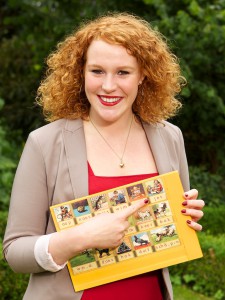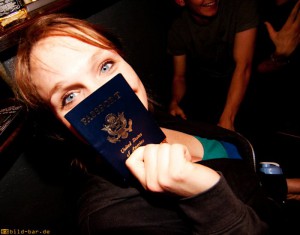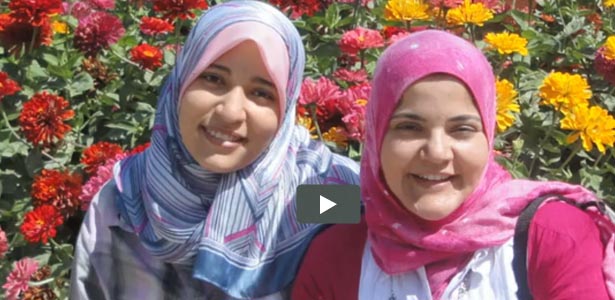
Jet M. J. Vonk, 2013-2014, The Netherlands, holding a Dutch reading instruction tool and pointing out her namesake
When doing your Ph.D. on a Fulbright grant in New York, prepare for busy times. But, in a way, you probably wouldn’t want it any other way. I am busy with seminars, starting new projects and writing papers on ongoing projects so I can submit them for publication, among other things. And, I am busy meeting rock stars. Well, the scientific versions of them. In other words: my kind of heroes and celebrities.
The scientific community is a different world with its own idols. What are the similarities between scientific rock stars and traditional celebrities? Movie stars and musicians appear in magazines and tabloids researchers do, too, but those are called ‘scientific journals.’ People travel to meet and greet movie stars and musicians—researchers do, too, but those are called ‘conferences.’ And if you want to become someone important, you follow the example of your idol. It is not for nothing that I moved to New York on a Fulbright grant to work with Dr. Loraine Obler. She has been the hero of neurolinguistic research on language and the aging brain for decades. Yes, I am doing my Ph.D. with the scientific version of Madonna.
In a similar vein, scientific conferences are sort of comparable to the Oscars and Grammys. A few big shots are invited to perform as the main acts (read: give a spiel about their research). The rest of the program includes oral or poster presentations, and everybody brings each other up to speed about the latest ins and outs in research land. The venue is filled with major names that jovially greet each other. Every now and then, the minor names, like me, nudge each other while saying, “Look, there goes so-and-so. And hey, there’s that-one-guy.”
Continue Reading



